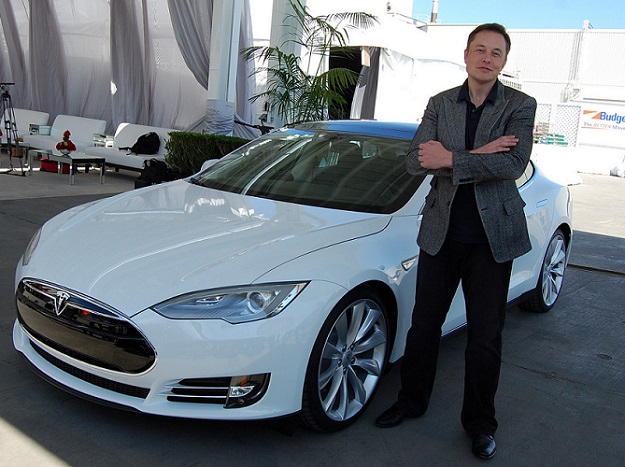At this point, it’s starting to seem that former GM and BMW executive Bob Lutz has a personal vendetta against Tesla CEO Elon Musk. While we’re accustomed to the outspoken auto industry veteran lambasting Tesla, Lutz in recent months has really dialed up the vitriol, so much so that he’s even taken to publicly making plainly false statements about Tesla’s business.
Earlier today, Lutz appeared on CNBC where he absolutely laid into Musk, Tesla, and even Tesla’s passionate fanbase, effectively calling the latter cult followers.
DON’T MISS: Somebody just smashed Donald Trump’s Hollywood Walk of Fame star with a sledgehammer
“Tesla supporters are like members of a religious cult,” Lutz said. “Just like Steve Jobs was worshiped at Apple, it’s the same way with Elon Musk. He’s seen as a new visionary god who promises this phantasmagorical future, a utopia of profitability and volume.”
However, drawing a distinction between the two CEOs, Lutz said that whereas Jobs actually delivered real products and results, Musk offers nothing except hot air and increasingly dire financial results.
“[Musk] hasn’t delivered a thing,” Lutz added, “except increasingly negative cash flow, and an increasing lack of profitability; more and more capital spending.”
Now that’s all well and good; Lutz is entitled to his opinion after all. That said, Lutz also made a point to completely and purposefully misrepresent Tesla’s business. In short, Lutz claimed that Tesla will never be profitable, intimating that the company loses money every time they sell a Model S or a Model X.
“I just don’t see anything about Tesla that gives me any confidence that that business can survive,” Lutz said, “unless people keep pouring new money in ad infinitum. If you’re not recovering labor and materials in your sell price, then doing twice as many or three times as many or four times as many doesn’t help. The losses just get bigger and bigger.”
This is horribly misleading and is not the first time we’ve come across such nonsense. Reuters last year, for example, used some backwards math and embarrassingly flawed logic to argue that Tesla loses $4,000 on every single car it sells. The reality is that the margins Tesla enjoys on the Model S and Model X are some of the best across the entire auto industry.
Consider the following observation from an astute commentor on Reddit:
There is a big difference between losing money for every car sold and spending more money than you make. Considering the profit margin on the Model S is over 25%, Tesla is actually in the latter category. Making the Model S is profitable. Rapidly expanding into a major car manufacturer while making the Model S is not.
*Edit: look at it this way. You want to open a McDonalds. It will cost you $500,000, which you borrow from a bank. The first year you bring in a million dollars in revenue, and make $100,000 profit from sales. However, you borrowed and spent $500,000 opening the store, which means you sort of lost $400,000 that first year.
Would Reuters say you lose $2.00 for every Big Mac sold? I guess so.
Lutz’s hate for Tesla, apparently, is so great that he either misses this point or purposefully ignores it. Like any startup, Tesla is spending every spare cent it has on capital expenditures, investing in itself for future products. The fact that Lutz, presumably a smart businessman, glosses over this fact is peculiar to say the least.
All in all, though, this isn’t too much of a surprise given Lutz’s previous statements about Tesla. Late last year, Lutz explained why he believes Tesla is doomed.
“I think Tesla CEO Elon Musk figured that if factory stores work for Apple, they’ll work for Tesla,” Lutz explained this past October. “But the fixed costs for an Apple store are next to nothing compared with a car dealership’s. Smartphones and laptops don’t need anything beyond a mall storefront and a staff of kids. A car dealership is very different. It sits on multiple acres. You need a big building with service bays, chargers, and a trained sales force, plus all the necessary finance and accounting people. It ties up a staggering amount of capital, especially when you factor in inventory.”








